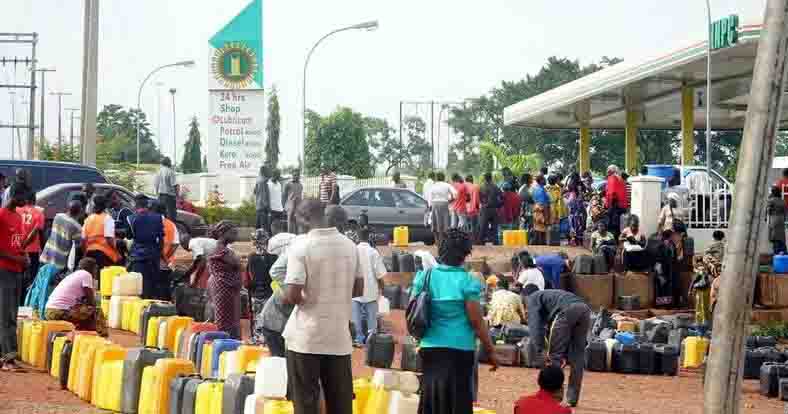Nigeria ( Commonwealth Union ) _ Diezani Alison-Madueke, Nigeria’s Minister of Petroleum and Resources has announced a fuel price reduction on January 18, 2015, bringing the retail price down from N97 to N87. She gave the explanation that the price reduction was brought on by the decline in crude oil prices on the global market. The outraged Nigerian population, which had high expectations for itself, claimed that N87 was still too expensive, refused to be appeased by the price drop, and ensured that the Goodluck Jonathan administration was ousted in the election, ushering in the rule of Major General Muhammadu Buhari.
Upon his inauguration, Buhari turned to the enormous array of competent energy industry professionals in the nation, somehow perceived himself among them, and claimed the position of petroleum minister on the grounds that he needed to be directly involved for things to be done correctly. He was an excellent petroleum minister and president.
As the Nigerian National Petroleum Company Limited recorded gross revenue of N2.39 trillion from oil and gas while incurring N2.6 trillion in subsidy claims in 2022, Buhari’s tenure as petroleum minister saw petroleum subsidy claims finally surpass oil and gas revenue receipts from crude oil sales! In 2015, Buhari had insisted that subsidy payments were frauds.

Regarding the availability of gasoline, Abuja has been experiencing a year-long problem that has subsequently expanded to other regions of the nation. The Nigerian people, which were outraged by the N97 and N87 per litre gasoline rates, found peace with the N270 per litre price and continued without so much as a grumble.
The start of the Ukrainian War in February 2022 had a significant effect on the global oil market, driving up the price of crude oil to levels not seen in seven years due to a reduction in supply caused by production losses.
Buhari had pledged to increase the capability of domestic refineries. Nevertheless , throughout his administration, NNPC Ltd. expanded its role as Nigeria’s importer of the petroleum goods that it was meant to generate. Production has decreased to 1.18 million barrels per day, much below Nigeria’s 1.8 million BPD OPEC quota due to oil theft, with a million barrels likely being lost daily to oil thieves who don’t particularly care about OPEC quotas.
Moreover, under the economic crisis, transportation has resulted in fuel prices having a significant impact on inflation. Yet, due to Nigeria’s inability to supply sufficient electricity, gasoline also plays an excessively large role in the production of home electricity in both the private and public sectors. In an economy that already struggled with double-digit inflation, the tight supply and high prices drive increasing inflation rates.
The failure of the energy policy has had devastating effects on the lives of nearly 200 million Nigerians.








